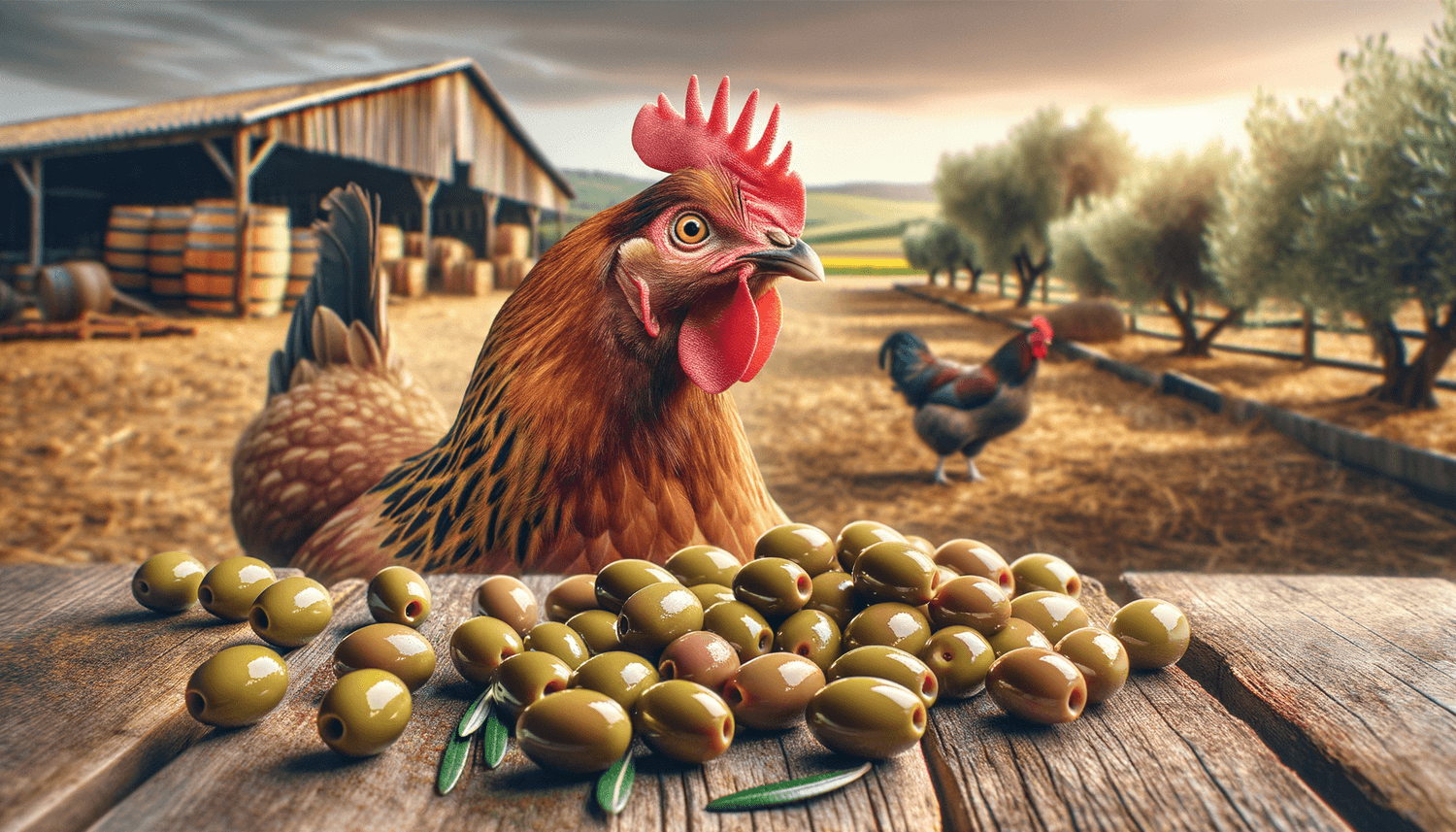It’s olive-picking season, and as backyard chicken enthusiasts, we can’t help but wonder, “Can our feathery friends enjoy these delicious morsels too?” In this fun and informative blog post, we’ll delve into the ins and outs of chickens and olives, exploring whether or not they can safely partake in these tasty treats. We’ll also discuss the importance of a balanced diet, learn about the nutritional value of olives, weigh the benefits and risks, and even share some tips for properly preparing your chickens’ Mediterranean snack. So fluff up your feathers and let’s embark on this flavorful journey together!
Can chickens eat olives?
Yes, chickens can eat olives, and it is safe for them to do so. However, moderation is key as olives are high in salt and fat, which can be unhealthy for chickens if consumed in large quantities. Ensure you provide olives as an occasional treat, while maintaining a well-balanced diet for your flock.
A balanced diet for backyard chickens
Just like humans, chickens need a balanced diet to maintain their health and provide nutritious eggs. Their diet should primarily consist of a high-quality chicken feed, which contains all the necessary nutrients for their growth and productivity. This chicken feed should make up around 80-90% of their daily intake, ensuring they receive appropriate levels of protein, vitamins, minerals, and other essentials.
The remaining 10-20% of a chicken’s diet can consist of treats such as fruits and vegetables, which not only add variety but also provide additional nutrients. Offering them these treats enriches their environment and allows them to express natural foraging behaviors. However, it’s crucial to maintain the balance between the main chicken feed and treats, as overindulgence in treats can lead to nutritional imbalances and health issues in your flock.
Nutritional value of olives for chickens.
Feeding olives to chickens can provide some nutritional benefits, although these should be offered in moderation. Olives are rich in healthy monounsaturated fats, which can contribute to the overall well-being of your chickens. They also contain some vitamins and minerals such as vitamin E, an antioxidant that helps protect cells from damage, and small amounts of iron, calcium, and potassium. Additionally, olives provide fiber, which can promote healthy digestion in your chickens.
Besides the nutritional content, olives can also contribute to your chickens’ hydration as they contain a significant amount of water. This can be particularly beneficial during hot weather, when chickens may require additional fluids to keep them comfortable and healthy. Moreover, offering olives as a treat can help stimulate the chicken’s natural foraging instincts and provide enrichment, keeping them engaged and content in their environment.
Nutrition table of olives for chickens.
| Information | Description |
|---|---|
| Nutritional Value | Olives contain healthy monounsaturated fats, vitamins (especially vitamin E), minerals (small amounts of iron, calcium, and potassium), and fiber. |
| Suggested Serving Size | A few olives per chicken, considering they should only make up a small proportion of the total diet. |
| Safe Feeding Practices | Always feed olives in moderation, as they are high in salt and fat. Avoid feeding olives exclusively to maintain a balanced diet. |
| Preparation | Rinse olives to remove excess salt or brine, then slice or chop them for easy consumption. |
| Potential Risks | Excessive salt intake can lead to health problems. High-fat content may lead to obesity if fed too often or in large amounts. |
| Hydration | Due to their water content, olives can contribute to your chickens’ hydration, especially during hot weather. |
| Digestion | The fiber in olives supports healthy digestion and gastrointestinal function. |
| Seasonal Availability | Olives are typically available year-round, although their peak season varies depending on the variety and region. |
| Other Benefits | Feeding olives as treats offers enrichment and encourages natural foraging behaviors in chickens. |
Alternatives to olives in your chicken’s diet
While olives can serve as a source of enrichment and nutrition for your chickens, it’s important to provide them with a variety of healthy treats to maintain balance and promote optimal well-being. Some healthy alternatives to olives include leafy green vegetables, such as kale or spinach, as well as fruits like apples or blueberries. These treats not only add variety to the diet but also help chickens access a broader range of vitamins, minerals, and other nutrients to support their overall health and immune function.
Pit the olives before sharing
Before serving olives to your chickens, it is critical to remove the pits, as they can pose a choking hazard. Olive pits are hard and can be difficult for chickens to digest, potentially leading to gastrointestinal obstructions or other health problems. To be on the safe side, always slice or chop the olives into small pieces to minimize the risk of choking, ensuring your feathered friends can enjoy their treats without any complications.
Consider growing your own olive tree
If you live in a suitable climate and have ample backyard space, consider growing your own olive tree for a sustainable source of chicken treats. Not only will you have an ongoing supply of olives for your flock, but you can also enjoy the numerous benefits of olive trees, such as their ability to withstand drought, their attractive silvery-green foliage, and the production of olives for human consumption. Plus, you and your chickens can share in the joy of harvesting olives together when the time is ripe!
In conclusion, while olives can be a nutritious and enjoyable treat for your chickens, always remember to prioritize a balanced diet with a diverse range of treats to ensure the health and happiness of your backyard flock. Happy olive-tasting!

















